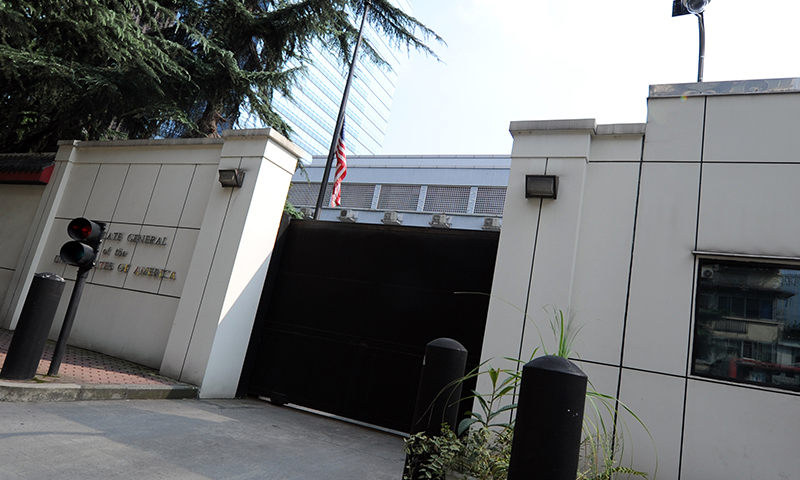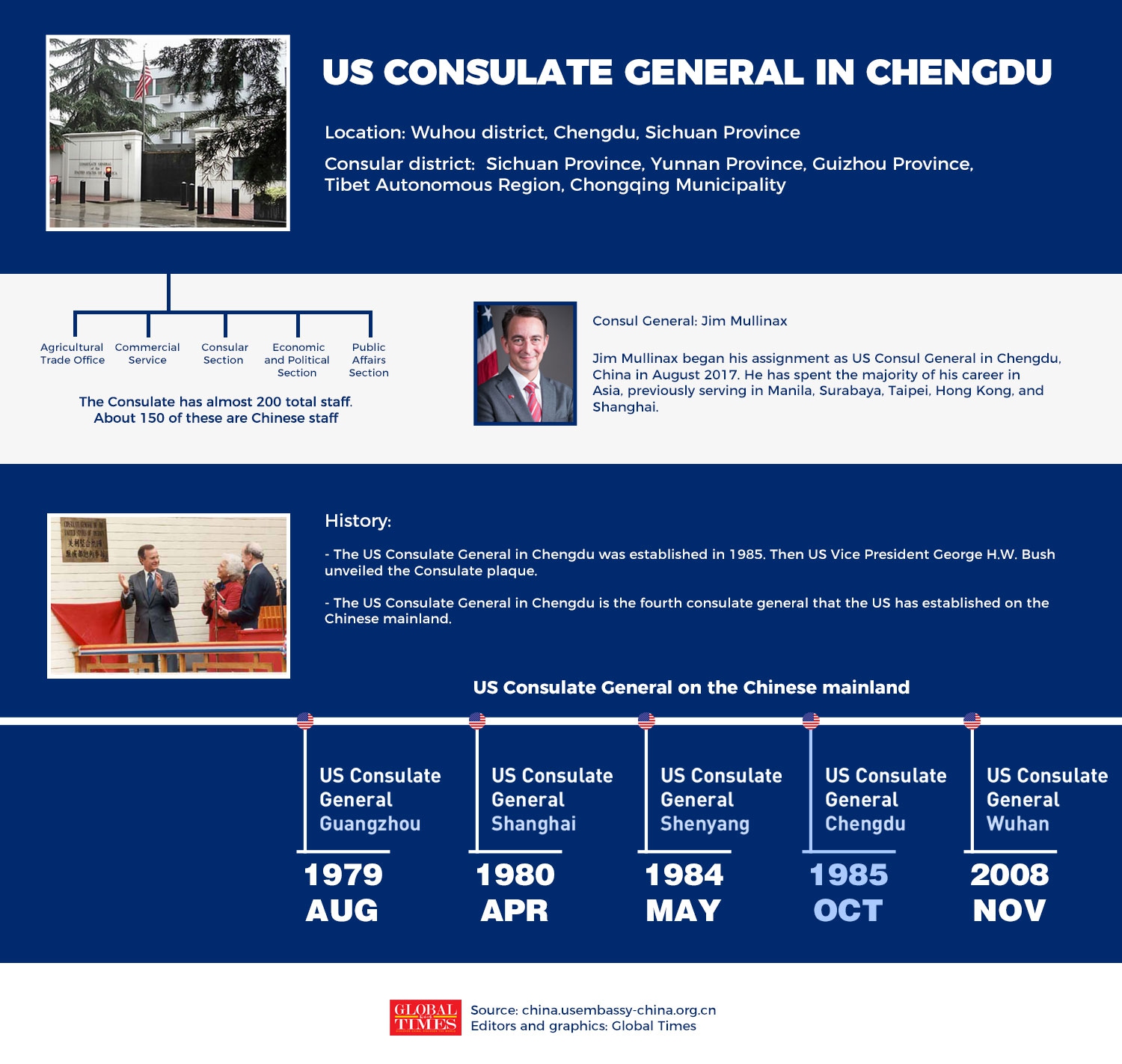US loses 'strategic intelligence interests' with closure of Chengdu consulate
By Yang Sheng and Bai Yunyi Source: Global Times Published: 2020/7/24 18:36:29
US diplomats’ activities in Chengdu ‘inconsistent with their identity’

The US consulate in Chengdu. Photo: AFP
In the latest round of diplomatic conflict between China and the US, the two sides have each ordered the other to close a consulate general. Experts on China-US relations and intelligence said that the losses for the two sides are generally equivalent, but the closure of the US consulate in Chengdu will cause more strategic losses on the US side as Washington has long used its diplomats in Chengdu to infiltrate Tibet and other regions in Southwest China, interfering in China's domestic affairs.
Wang Wenbin, a spokesperson of China's Foreign Ministry, said at a routine press conference on Friday that some diplomats at the US consulate in Chengdu have undertaken activities that are "inconsistent with their identity" to interfere in China's domestic affairs and damage China's national security, and China has made many representations to the US on that front.
Li Haidong, a professor at the Institute of International Relations under the China Foreign Affairs University, told the Global Times on Friday that the US consulate in Chengdu covered affairs in China's Tibet and many ethnic regions in Southwest China, meaning it played a significant strategic role for the US in China.
The US Consulate General in Chengdu was established in 1985 and covers regions including the Sichuan, Yunnan and Guizhou provinces, the Chongqing Municipality and the Tibet Autonomous Region, according to the consulate's website.
An expert on China-US relations and intelligence who asked for anonymity told the Global Times that the US has used its consulate in Chengdu to infiltrate Tibet region and interfere in China's ethnic and religious affairs for a very long time.

Infographic: GT
Li said, "In recent years, the consulate in Chengdu has been collecting intelligence in Tibet and other areas of Southwest China, and has produced misinformation to demonize China's governance in Tibet. If the US, just as US Secretary of State Mike Pompeo said, intends to increase its input in China and support a color revolution, the consulate in Chengdu could create a lot of problems for China."
Unlike the US consulate in Chengdu, China's consulate in Houston is mainly responsible for providing consular services to Chinese nationals in southeastern American states and other diplomatic affairs, said experts.
China's Consulate General in Houston was established in 1979 and covers eight southeastern states including Texas, Florida, Louisiana and Oklahoma, as well as the US territory of Puerto Rico.
"The workload of the consulate in Houston is not comparable to those of the consulates in New York and San Francisco, cities that have huge numbers of Chinese residents. And due to the COVID-19 pandemic the demand for visas and other consular services remains low," said Li.
The closure of this consulate in Houston will impact regular people-to-people exchanges between the two countries and inconvenience Chinese nationals in the area as well as US citizens who need to do business with or travel to China.
The regions covered by the two consulates have many similarities. Both Sichuan and Texas are home to high-tech companies and national strategic facilities. The Lyndon B. Johnson Space Center of National Aeronautics and Space Administration (NASA) is located in Texas. China's Xichang Satellite Launch Center is located in Sichuan.
Many US companies operate in Sichuan, and many private Chinese firms do business in Texas, but experts noted that the closures of the two consulates will not entirely suspend China-US trade in those regions.
Chinese web users also mocked the US diplomats "will lose more" as they can't stay in Chengdu anymore. Some of them said on Sina Weibo that they feel "very sad" for the Americans who won't have access to delicious cuisine from Sichuan like hotpot nor the lovely giant pandas in Chengdu, as they would feel the consequences of their reckless politicians who decided to endlessly challenge the bottom line of the Chinese government.
Chengdu has become a compelling destination for foreign travelers and expats, particularly a heaven for food lovers.
Posted in: DIPLOMACY